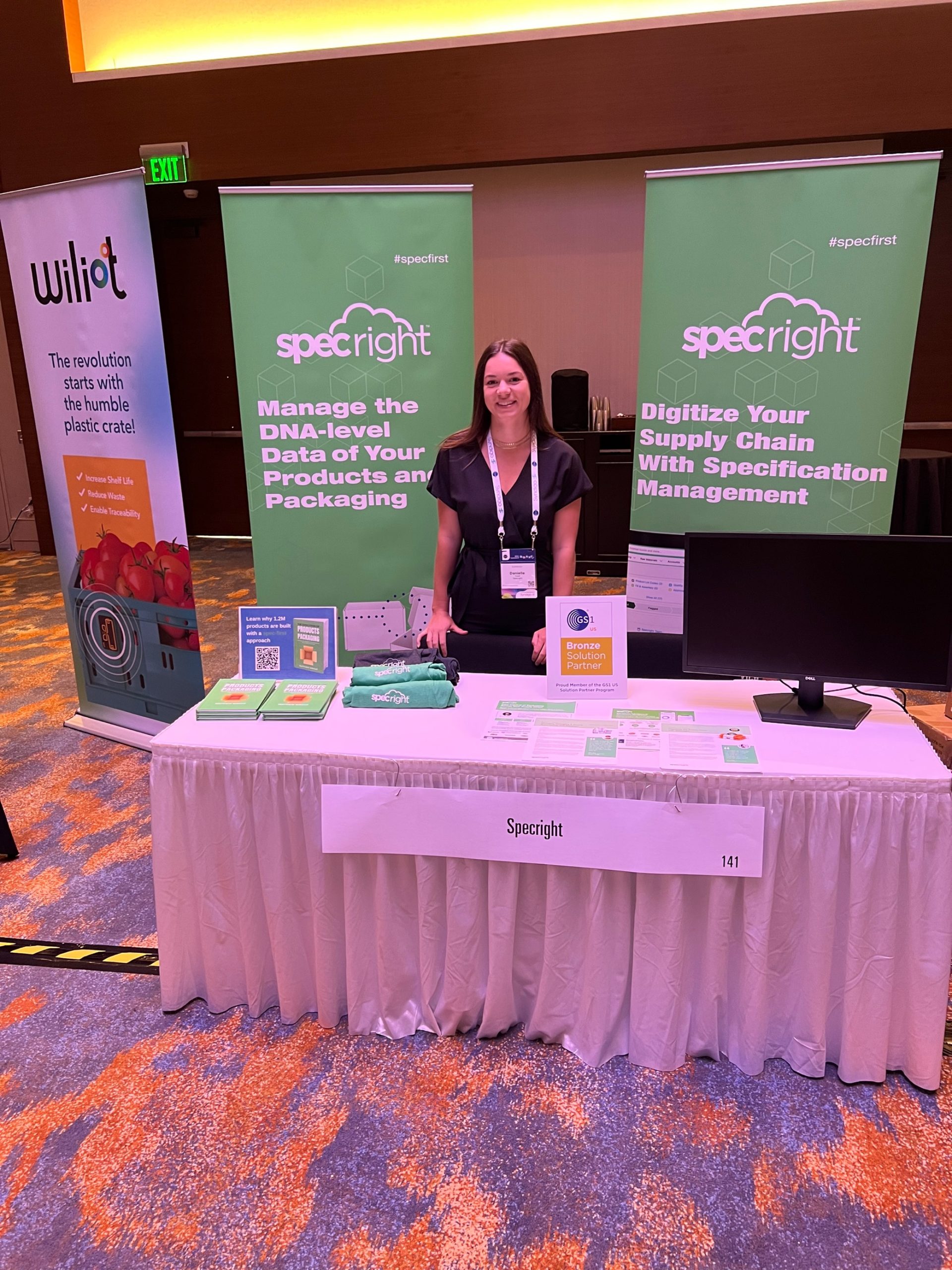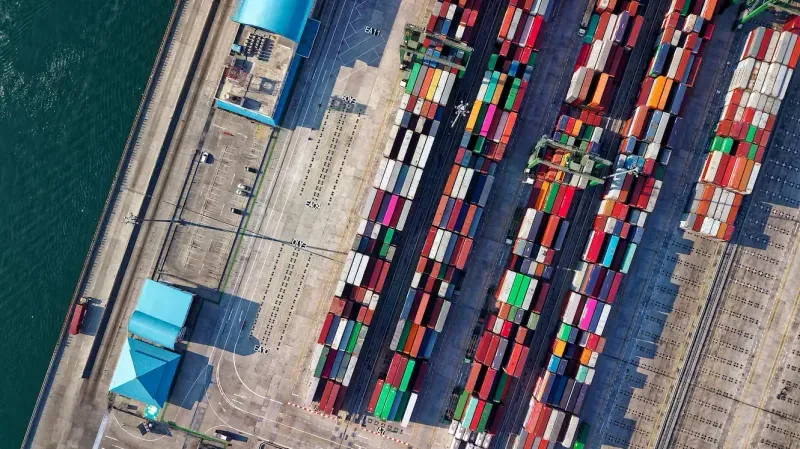Earlier this week, the Specright team and I attended GS1 Connect, one of the largest events dedicated to global standards around capturing and sharing product data. During the conference, GS1 member organizations (brands and retailers), and GS1 Solution Partners came together to work on solving some of today’s biggest challenges surrounding supply chain data standardization.
Tons of topics were covered this year, from traceability, to emerging regulations, and sustainability. All topics were discussed through the lens of how data can help companies reach their goals, drive efficiency, and manage demands.
Here are my top 3 learnings from the event.
1. Data Standardization is No Longer a “Nice to Have” – It’s Critical
As the product manager of the Specright Network, a Specright product that democratizes and simplifies data sharing with Amazon’s QLDB, I’m highly focused on finding new ways to provide our customers with standardized data sharing methods – and am always excited to hear how other organizations are thinking about it.
Lucky for me, GS1 speakers covered this topic extensively, especially the pain points suppliers, retailers, and brands are facing when sharing data. Suppliers are challenged with sharing data in different formats, specific to each company, and through many different portals or share sites. Brands have product data scattered across their tech stacks. Retailers aren’t getting complete, usable data fast enough to keep up with consumer demands. Product and packaging data has many uses – but when it has many formats, it becomes useless. Standardized data is the key to driving efficiency and keeping up with the speed at which today’s markets move.
2. Zero-Tolerance for Zero Transparency, Product Data Must Be Readily Available to Gen Z’ers
I also learned how greatly consumer personas are shifting. Gen Z’ers have the spending power of more than $140B, and are one of the most informed consumer cohorts to date. This means that brands and retailers are tasked with a higher level of providing product visibility – often a herculean effort when data isn’t clean.
Gen Z expects to know how recyclable a product is or whether it was sustainably sourced at the touch of a button, as this data greatly influences their purchasing decisions. According to speaker Roy Woodhouse, North America Commercial Lead at NielsenIQ, common sustainability-specific categories that consumers are researching before purchasing a product are: social responsibility, sustainable farming, environmental sustainability, sustainable packaging, and animal welfare.
Consumers’ increased demand for product data visibility has escalated the adoption of GS1’s 2D barcodes. While 2D barcodes will assist with providing product data to the consumers, the barcodes are linked to a repository of specification data that brands must also ensure is correct. GS1 has standardized the accessibility of this data to consumers, but for brands that don’t have a Specification Data Management system in place, it’s not always easy to source trusted and correct data. As consumers become more and more data literate, demand for visibility will likely expand.
3. Sustainability is Top of Mind for Supply Chain Stakeholders, From Producers to Consumers
My final takeaway is this: the pandemic may have paused sustainability initiatives for a bit – but they’re back in a big way.
The one commonality across sustainability conversations at GS1 was that reliable data is critical to capturing a baseline, so companies can actually improve on sustainability goals.
However, what was missing from the discussion is how companies are successfully doing it today. Many companies are still struggling to figure out how to get the data they need to understand where they stand when it comes to sustainability.
Why? Because sustainability is omnichannel – and it’s challenging to measure how sustainable each supply chain stakeholder is (or isn’t) without visibility into the entire supply chain’s data. In addition to a lack of ease in sharing and accessing critical data, there isn’t a defined set of accepted measurements of sustainability. Everyone is measuring and improving upon something different – which adds even more chaos into the mix.
Here at Specright, sustainability is one of our values. We believe it’s possible to live in a world without waste – and it all starts with taking a spec-first approach to your supply chain. To accomplish your sustainability initiatives, you must take control of your specification data. There’s really no way around it. It’s time to transition from spreadsheets and emails into standard digital formats that you can use to report on and drive sustainability initiatives.
Although data standardization and sustainability are some of the biggest challenges of our generation, I can’t wait to see what lies ahead. The biggest challenges produce the biggest opportunities, and I’m excited to be a part of a company that’s main priority is tackling these issues.
I want to say thank you to our partners at GS1 for such a great event in San Diego. GS1 Connect was filled with inspiration in the areas like sustainability, software, data management and more. At Specright, I look forward to taking my learnings and finding new ways to improve our system and partnerships, so our customers can continue to make amazing, sustainable things.
Explore More Blogs
Get Started
With Specright’s Solution Suite, you can digitize, centralize, and link your specification data to drive efficiencies, intelligence, traceability, and collaboration within your organization and across your supply chain network.



